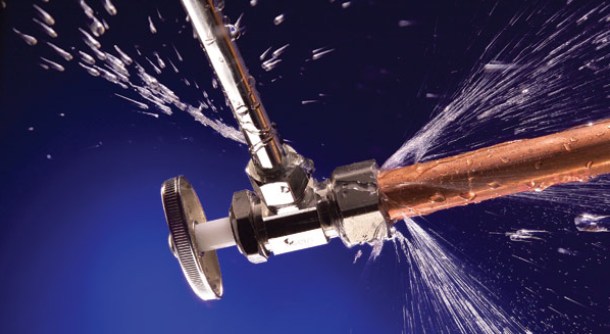Beware of things sellers may try to hide
 It is certainly in your best interest to pay for a home inspector prior to purchasing any home. Professional, certified inspectors are the best option when it comes to obtaining an unbiased and objective assessment of the sale property’s current state / condition. After all, if you try to cut corners, the home you purchase could well turn into a money pit if you forego the relative minimal expense and suggested due diligence prior to signing the binding purchase agreement.
It is certainly in your best interest to pay for a home inspector prior to purchasing any home. Professional, certified inspectors are the best option when it comes to obtaining an unbiased and objective assessment of the sale property’s current state / condition. After all, if you try to cut corners, the home you purchase could well turn into a money pit if you forego the relative minimal expense and suggested due diligence prior to signing the binding purchase agreement.
Though, admittedly, a home inspector is the subject matter expert. However, you being aware of the following makes good, logical sense.
Leaks anywhere?
Whether the leak is a relative small issue in a sink or a potentially costly roof problem, be very diligent when looking for any water / pipe related leak concerns. If you look up at the ceiling and notice fresh paint, be suspicious. If you see dark silhouettes on the bottom of any wall that appear to have been covered over with paint, be suspicious. If you see moist ground next to the foundation behind plants or bushes, be suspicious. Ultimately, get permission from the seller to accompany an inspector conducting a thorough inspection of your chosen property – and make sure to point out any potentially problematic signs of suspected cover up.
Any critter and/or pet damage?
Look high and low at your desired home prior to making any purchase commitment. Stained floors and carpets may be pretty obvious. Is the foundation clear around the perimeter of the home, especially if the structure is built on a sub-floor format? Is there an overabundance of spider webs? Do you see several glue or regular mouse traps in the pantry or garage outside? Do the exterior window sills have large deposits of bird droppings marring the exterior? Even worse, there is always the possibility that the walls have termites. No matter what, hire a pest inspector to uncover any issue a regular home inspector may miss – and be very attentive throughout the inspection process.
Structural and/or roof issues?
Although major structural or exterior roof problems are inherently difficult to hide, make sure to do your due diligence when conducting a very thorough inspection of a potential property. Of course, a professional inspector should be consulted as well. However, you can certainly augment a professional’s assessment by searching for any less-than obvious signs of damage. It makes rational sense that the smaller, harder-to-find repairs are going to be those potential problems that a seller may innocently (or overtly) overlook.
Unusual issues?
Was the property you are trying to purchase the scene of a horrific crime? Depending on the state you live in, it may or may not be a requirement that the seller must disclose if anything tragic occurred inside or outside the residence. If your state does not have any such legal obligation to disclose, perhaps at the very least conduct a Google search to see what comes up when you list the address of the house. Another way to determine if there is anything unusual in the house is to knock on the doors of nearby neighbors, introduce yourself, and let them know you are considering purchasing a home nearby and was wondering if there is anything you should know. If they are made aware of your sincerity, then perhaps they would be more than happy to offer their opinions. Make sure to be discreet so that the seller of the house does not get unnecessarily paranoid.
Problematic home support systems?
If you are purchasing a home that has some age to it, it is certainly in your best interest to make sure that the water heater and heating and air conditioning systems are all in good working order. Of course you will want to consult with your home inspector about the age and reliability of any of these important components; however you can also ask the seller directly and see what kind of response you get. If the seller simply says, “I don’t know” or “I’m not sure,” at least you have asked and given them the benefit of the doubt. Ultimately, it is certainly in your best interest, to make sure these expensive, required components are going to be reliable – or if not, the seller is going to offer some sort of a concession in the overall purchase price.